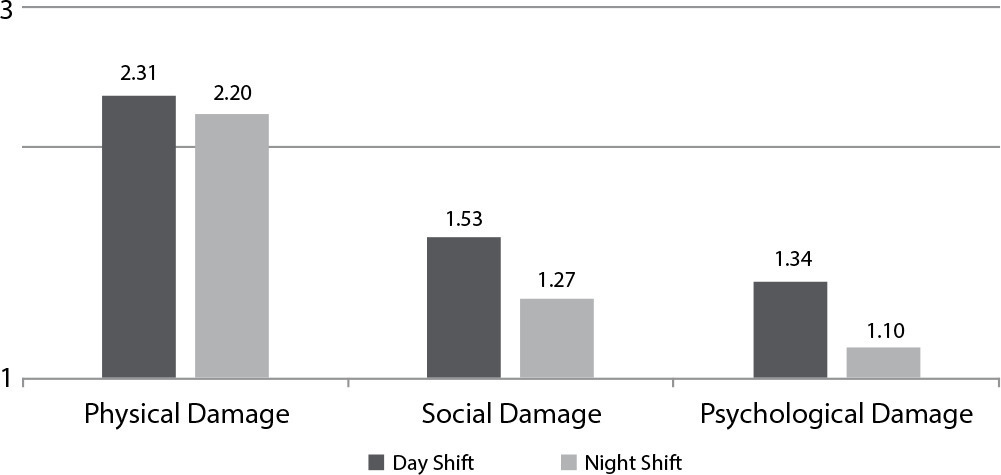-
ORIGINAL ARTICLE06-14-2024
Sleep duration and quality of Brazilian nursing staff who work in shifts
Revista Brasileira de Enfermagem. 2024;77(2):e20230167
Abstract
ORIGINAL ARTICLESleep duration and quality of Brazilian nursing staff who work in shifts
Revista Brasileira de Enfermagem. 2024;77(2):e20230167
DOI 10.1590/0034-7167-2023-0167
Views1See moreABSTRACT
Objective:
to analyze sleep duration and sleep quality in nursing professionals who work in shifts.
Method:
this is a cross-sectional, analytical research, carried out between September 2017 and April 2018, at a public hospital in southern Brazil, with the nursing team. A socio-occupational and health symptoms questionnaire, the Epworth Sleepiness Scale, and the Pittsburgh Sleep Quality Index were used. Data are presented as descriptive and inferential statistics, bivariate analysis, and binary logistic regression.
Results:
participants were 308 nursing professionals with a predominance of long-term sleep, absence of drowsiness, and poor sleep quality. Short-term sleep (<6h) was associated with day shift and poor sleep quality. Sleep quality was associated with presence excessive daytime sleepiness and work day shift.
Conclusion:
work shift, insomnia and headache were the main factors related short-term sleep for nursing professionals. The results may justify the development of intervention research for workers’ health.
-
ORIGINAL ARTICLE07-18-2022
Shift work schedule and damage to nursing workers’ health at Brazilian public hospital
Revista Brasileira de Enfermagem. 2022;75(6):e20210836
Abstract
ORIGINAL ARTICLEShift work schedule and damage to nursing workers’ health at Brazilian public hospital
Revista Brasileira de Enfermagem. 2022;75(6):e20210836
DOI 10.1590/0034-7167-2021-0836
Views0See moreABSTRACT
Objective:
to compare work-related damage between the day and night shifts of nursing workers in at a public hospital.
Methods:
a cross-sectional, and correlational study, conducted with 308 nursing workers from a Brazilian public hospital. Data collection took place from September 2017 to April 2018 using self-administered questionnaires that investigated socio-occupational variables and the effects of work (Work-Related Damage Assessment Scale). Analysis was descriptive and analytical with a 5% significance level.
Results:
during the day shift, the variables that most influenced nursing professionals’ health were body pain, headache, back pain, legs pain, and sleep disorders. When comparing the shifts, it was identified that daytime influences the studied variables more than nighttime. Job tenure was correlated with psychological damage.
Conclusions:
the results showed a greater influence of the day shift on the health of professionals who work in a hospital environment. Job tenure influences psychological damage.




